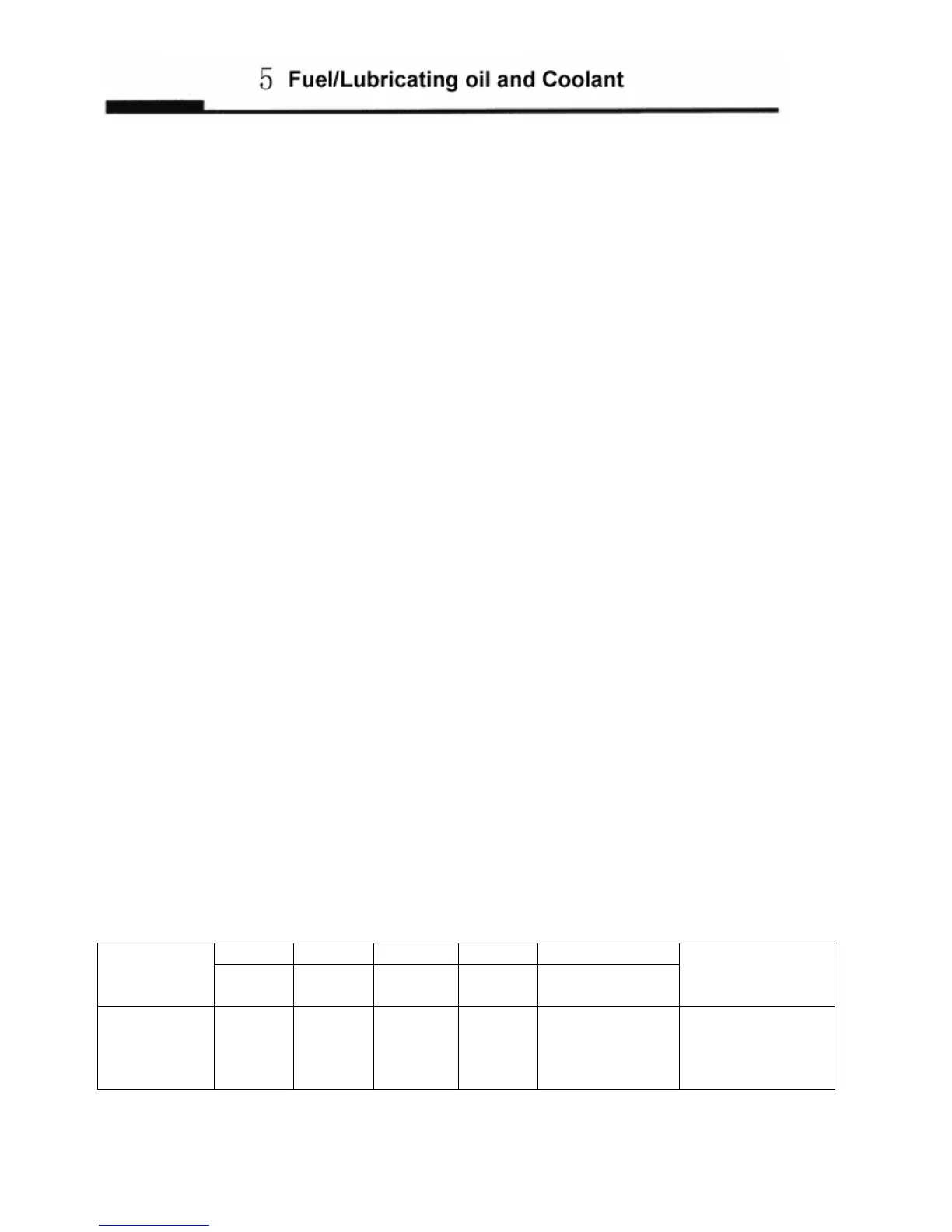Coolant specification
The quality of the coolant which is used can have a great effect on the efficiency and life of the cooling system. The
recommendations indicated below can help to maintain a good cooling system and to protect it against frost and/or
corrosion. If the correct procedures are not used, Lovol cannot be held responsible for frost or corrosion damage.
1. If it is possible, use clean soft water in the coolant.
2. If antifreeze mixture, other than Lovol antifreeze mixture, is used to prevent frost damage, it must have an
ethanediol base (ethylene glycol) with a corrosion inhibitor. It is recommended that the corrosion inhibitor is of
the sodium nitrite/sodium benzoate type. The antifreeze mixture must be an efficient coolant at all ambient
temperatures and it must provide protection against corrosion. It must also have a specification at least as good as
the requirements of the standards of BS.6580 or MOD AL39.
LOVOL antifreeze exceeds the requirements of the above standards. The quality of the antifreeze coolant must be
checked at least once a year, for example, at the beginning of the cold period. The coolant must be renewed every two
years.
The antifreeze mixture must consist of equal quantities of antifreeze and water. Concentrations of more than 50% of
antifreeze must not be used because these can affect adversely the performance of the coolant.
3. When frost protection is not necessary, it is still an advantage to use an approved antifreeze mixture because this
gives a protection against corrosion and also raises the boiling point of the coolant. If an antifreeze is not used,
add a correct mixture of corrosion inhibitor to the water. Renew the mixture of water and corrosion inhibitor
every six months or check it according to the inhibitor manufacturer's recommendations.
Attention:
Certain corrosion inhibitor mixtures could cause damage to some engine components.
When the diesel engine is used at 0℃, the coolant shall be prevented from freezing to lead relative parts burst. The
engine type which use closed cycle cooling system may use antifreeze with property pour point or be added with hot
water, but the water shall be exhausted once stop the car. See table 2-3 for common antifreeze formulas.( for
reference)
During preparing the antifreeze, attention shall be paid to fire safety due to the flammability of ethylene glycol and
alcohol. Before using antifreeze, clean the dirt inside the cooling system preventing the production of new chemical
sediments to influence the cooling effect.
Formula of antifreeze
Name
ethylene
glycol
Alcohol
